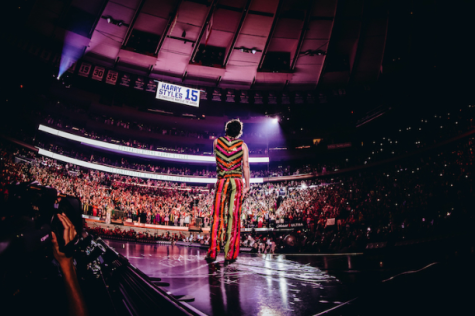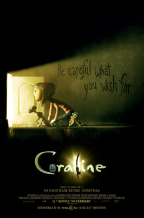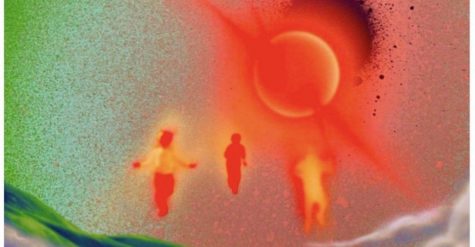1984
The Broadway adaptation of George Orwell’s 1984 has taken the theatre world by storm with its “doubleplusgood” translation of George Orwell’s timeless novel Nineteen Eighty Four from text to stage.
The play begins with the protagonist, Winston Smith, played by Tom Sturridge, writing a draft of an entry in a newly-purchased journal.
A number of critics then appear who discuss the importance of what Winston is writing. With the inclusion of these individuals, the play does begin with a slight departure from the novel.
The play then continues with a number of scenes from the book which occur rapidly throughout the play.
Some of the scenes occur several times, presumably done in order to demonstrate the monotony of Winston’s life under the rule of the Party—the oppressive government which controls his and everyone’s lives.
Throughout the play, there are periods of sudden flashes of light and then darkness. These are done in order to emphasize certain scenes and demonstrate scene changes.
The play also includes these flashes of light and rapid scenes in order to make the audience lose a certain sense of comfort and truly draw them into the actions and emotions of the characters.
The play then progresses, introducing Julia, Winston’s lover. She is introduced in a few small scenes and during the Two Minutes of Hate—a period during which Party members watch videos of political dissidents and scream at them.
The relationship between Winston and Julia begins to progress when Julia subtly hands him a note with the words “I love you” on it. The two then meet up in a secret place and profess their love of each other and hatred of the Party.
The play does a wonderful job of illustrating the differences in the ideologies between Winston and Julia. While Winston focuses heavily on full-scale rebellion against the Party, Julia prefers to engage in minor acts of rebellion to make herself happy.
The latest portion of the play takes place in the Ministry of Love. Despite its pleasant sounding name, this place is actually where the government punishes criminals—known as “thoughtcriminals.”
The majority of scenes in the Ministry of Love involve the Inner Party member O’Brien torturing Winston into submitting to the Party. The set for the Ministry of Love is an all-white room—Room 101—filled with blinding light.
The heavy light in the room is supposed to be one of the many examples of irony in the play, as light is often associated with safety and comfort. But in this case, Winston is being tortured in the bright light.
After sessions of violent conditioning, Winston begins to believe in important parts of the Party doctrine, demonstrated by his acknowledgment that two plus two equals five.
The final act of submission to which Winston had not succumbed was the betrayal of Julia. Only when Winston betrayed Julia could the Party claim victory in fully conquering Winston’s mind.
O’Brien is finally able to accomplish this final step by using Winston’s biggest fear—rats—to fully complete Winston’s conditioning. O’Brien puts a box full of rats in front of Winston’s face and gradually makes the rats come closer to Winston’s face until he begs for O’Brien to torture Julia instead.
With this betrayal of his former lover, Winston is never the same. He loses his former liveliness and fully submits to the Party. The play then ends with Winston’s final act of submission—thanking the Party.
Overall, this play was a fantastic adaptation of Orwell’s prolific novel. There were a few limitations because of the setting and the fact that it was in the medium of a play, but these limitations did not hinder enjoyment of the play a single bit.
This play is a must-see, and it will leave you feeling awestruck.









